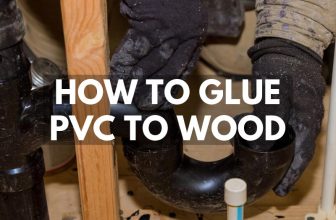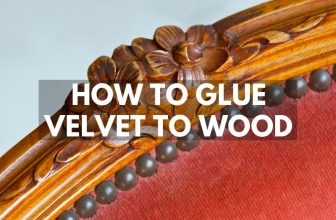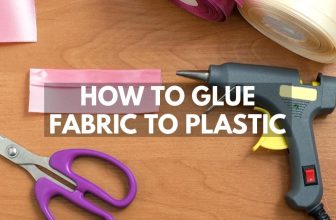
How to glue metal to glass
To join glass to metal with glue you need an adhesive that will stick to very smooth surfaces and provide some shock absorption. In this guide, we explain how to glue metal to glass and which type of glue works best.
When you need to bond glass and metal together but don’t have any pre-drilled holes, glue might be your last resort. But, adhesives will actually work surprisingly well with glass and metal making them as good a choice as any to create a permanent fixing.
Unless you are a professional or know what you are doing, you should never drill through the glass to attach a fixing. Whether you need to fix metal to glass or glass to metal, gluing is one of the easiest and safest routes to go.
What glue for metal and glass?
Regular metal adhesives don’t work too well with glass and so we recommend using a glass glue that works with metal. For small and detailed projects around the house, we recommend using super glue most of the time. For bigger jobs like fixing a glass tabletop onto a steel frame, there are several types of glue we might use.
- Cyanoacrylate (Super Glue) – Fast drying but brittle once set. You can get cyanoacrylate gels which are better suited to glass but mostly for small jobs and repairs.
- Clear Epoxy – Heavy-duty adhesive that requires some mixing to activate the setting and needs up to 3 days to fully cure. A very reliable glue for fixing metal to glass.
- Structural Acrylic – The experts at Permabond describe structural acrylics as, “developed for demanding applications that require high tensile, shear, and peel strength as well as maximum shock and impact resistance”.
- Hybrid Silicone Polyurethane – Using the benefits of silicone with the adhesive power of polyurethane glue makes this perfect for bonding glass with metal.
- Light Curable (UV) Adhesive – This kind of glue is activated using UV light which causes the glue to set. This creates a chemical bond to the glass/metal surfaces which is very tough to beat. This type of glue works well with glass as you can shine the UV light through the surface to get maximum exposure.
Guide for gluing wood to metal
Safety
When working with glue you should always wear safety glasses and nitrile gloves to protect yourself. Make sure your workspace is free of trip hazards, well lit, and well ventilated. These are the basic precautions but always follow the guidelines supplied with your adhesive.
When working with glass and metal you need to watch out for sharp edges that could cut you. With glass, in particular, be very careful not to drop or cause impact which could shatter it to pieces.
Preparation
To prepare metal and glass before gluing you need to make sure you have 2 clean surfaces to work with. Glass is very easy to prepare using a fresh blade to remove any previous glue residue to start with. Once this is done just wipe it clean with some soapy water and let it dry.
To prepare metal to be glued to glass you need to first remove any loose dirt and grime stuck to it. Then you should inspect for rust and remove that with a wire brush or wire wool. You can then use some sandpaper to finish the job and leave the surface a little rough. Clean with a damp cloth and you are ready to apply the glue.
Application
For all metal to glass adhesives apart from epoxy, your glue will not need to be mixed or prepared before applying. If you are using epoxy resin then mix the two parts just before you are ready to start gluing.
To achieve a good bond between metal and glass the aim is to apply a thick bead of glue in an even pattern. By applying the glue generously in the center of your joint you can compress the surfaces being bonded together. This pushes the glue out to the sides and squeezes out any air bubbles.
It is important to get things as close to in position as possible because you don’t want to be moving anything around after the first contact. Because glass is transparent any mistakes you make will be visible so bear this in mind as you are joining metal to glass.
Setting
To glue metal to glass you need to make sure that it has enough time to set and cure properly before touching it again. Set it into position and then leave it for as long as it takes to fully set. Be mindful about applying too much pressure and make sure everything is balanced and secure before letting it set.
Gluing metal onto a vertical glass surface can be a challenge unless using fast-drying cyanoacrylate. The problem is that any kind of unsupported weight is likely to move and lose grip before fully setting. If possible try and work with gravity and not against it when setting the glass onto the metal. If you don’t have this luxury then you may have to fashion a support system or stand.
FAQs
Does Gorilla Glue Bond Metal to Glass?
The original Gorilla Glue will bond to both metal and glass however using Gorilla Glue Clear is more discreet for transparent surfaces. With most polyurethane adhesives you must dampen the surfaces before being glued. When the glue reacts with the water it starts to harden and creates a very strong chemical bond.
What Kind of Glue Will Stick to Glass?
Cyanoacrylate, Silicone Polyurethane Hybrid, Epoxy, Structural Acrylic, and UV glues will all adhere to glass. These kinds of glues do not need to be absorbed and will stick to the glass better than other adhesives. There are others that will work but these are the best options for most projects.
Will JB Weld Bond Metal with Glass?
JB Weld two-part epoxy resin will bond with most materials and surfaces including metal, glass, and mirrors. JB Weld also makes a ClearWeld version which is better suited to glass and sets crystal clear. It will take up to 24 hours for the bond to set and cure but once it has you will have a very strong grip on both metal and glass.
Will E6000 Work on Glass and Metal?
E6000 creates an excellent bond with all types of metal and glass. You can use it on copper, brass, aluminum, stainless steel, iron, and directly onto glass. While this adhesive will set in about 10 minutes it takes a full 24-72 hours for the bond to reach full strength.
Does Silicone Stick Glass to Metal?
Silicone is an excellent adhesive to stick glass to metal and is in fact used in window frames all the time. You can use silicone to stick metal to glass although a better option with stronger adhesion would be a hybrid silicone polyurethane like Everbuild Stixall.
Will Ardalite Stick Metal to Glass?
Ardalite offers 3 varieties of epoxy adhesive – heavy-duty, clear, and rapid. All of them will stick metal to glass but the clear option benefits from being less visible. The heavy-duty option takes the longest to set but ultimately provides the strongest bond. Araldite Rapid is ideal for quick fixes and small projects but overall we would use the original heavy duty.
Does Epoxy Stick to Glass and Metal?
Using epoxy resin to stick glass to metal is a great idea for DIY fixings. You can get a clear epoxy for joints that will be visible through the glass which provides a high-end finish. The metal should be cleaned before gluing and once the epoxy is on it must be left to set for up to 72 hours.






